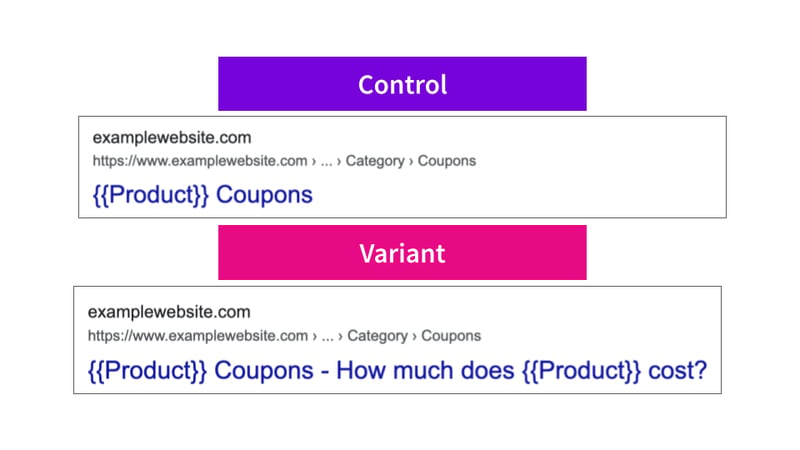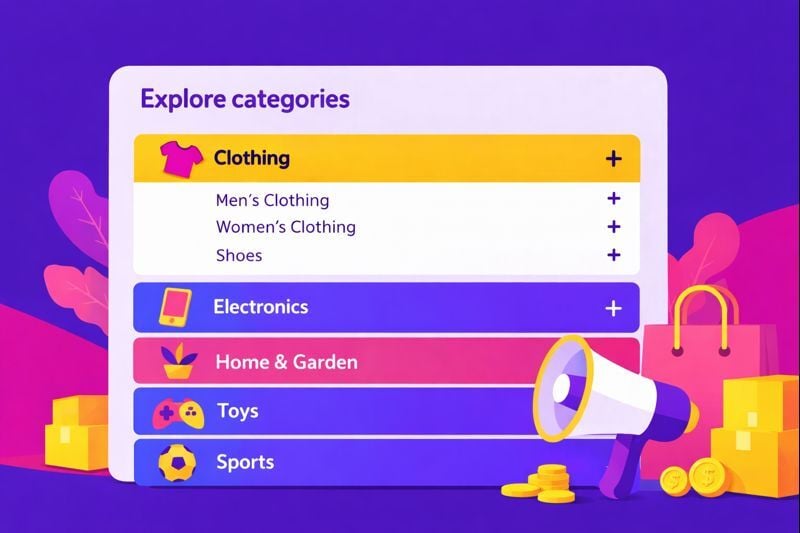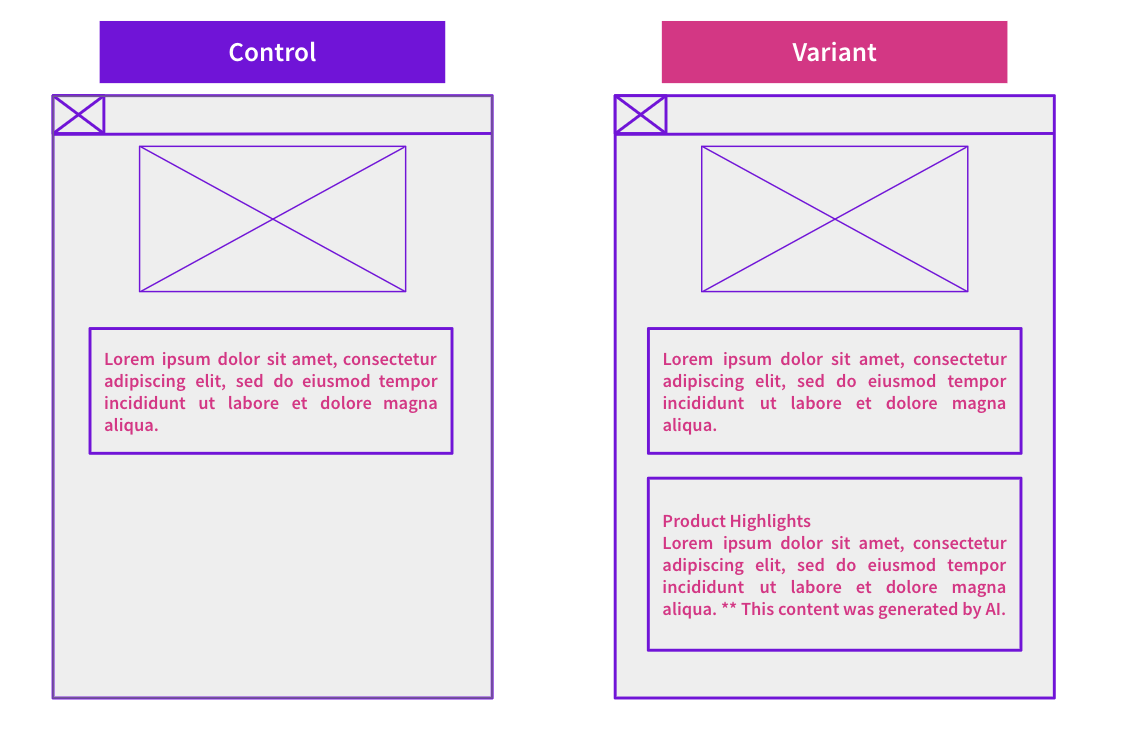Start here: how our SEO split tests work
If you aren't familiar with the fundamentals of how we run controlled SEO experiments that form the basis of all our case studies, then you might find it useful to start by reading the explanation at the end of this article before digesting the details of the case study below. If you'd like to get a new case study by email every two weeks, just enter your email address here.
In this week's #SPQuiz, we tested adding a question on the cost of a product within the title tag of one of our customer's offer pages. What do you think was the impact on organic traffic?


The Case Study
Many people tend to fall into the trap of believing that only “big changes” can make a significant impact. However, this is not always the case. Sometimes, a simple adjustment, such as adding a question to a title tag, can produce significant results.
Our customer decided to test a minimal variation on their title tag. They had seen traffic coming to the offer pages on their website with queries like “How much does cost?” and decided to include that in the page’s title tag to see if it improved rankings. Not only does the new title tag add an additional instance of a keyword, but it also better matches anyone searching specifically for how much this product costs.
We saw in a previous test that rephrasing sections of a page into questions can have a positive impact on organic traffic. Building on this insight, the hypothesis for this test was that increasing the number of instances of the targeted keyword, and using a question-phrased query would strengthen the page’s relevance and alignment with users’ queries. The ultimate goal was to improve their existing rankings as well as their organic clickthrough rate.
What we changed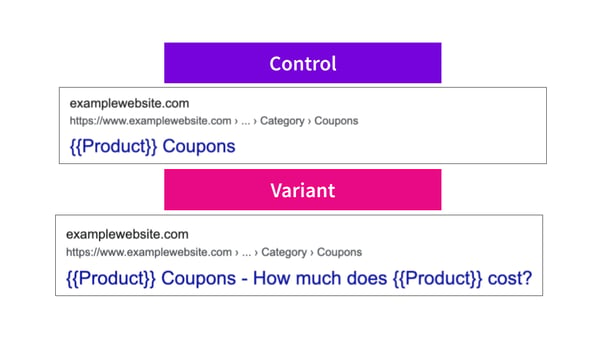
Results
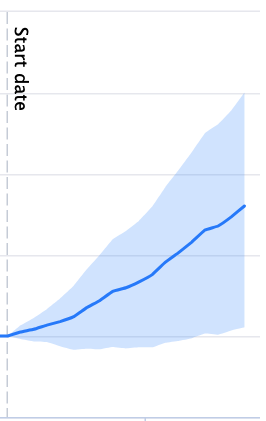
Despite the seemingly small change made to the title tag, this test had a substantial positive impact. The test indicated a predicted a greater than 5% uplift in organic sessions.
The key takeaway from this case study is that even minor changes to elements like title tags can yield significant improvements in search engine performance. It emphasizes the importance of conducting tests with well-formed hypotheses, no matter how minor the change may be. This approach allows us to better understand what works best for a site’s visibility and user engagement, ultimately leading to more effective SEO and improved rankings.
How our SEO split tests work
The most important thing to know is that our case studies are based on controlled experiments with control and variant pages:
- By detecting changes in performance of the variant pages compared to the control, we know that the measured effect was not caused by seasonality, sitewide changes, Google algorithm updates, competitor changes, or any other external impact.
- The statistical analysis compares the actual outcome to a forecast, and comes with a confidence interval so we know how certain we are the effect is real.
- We measure the impact on organic traffic in order to capture changes to rankings and/or changes to clickthrough rate (more here).
Read more about how SEO testing works or get a demo of the SearchPilot platform.
